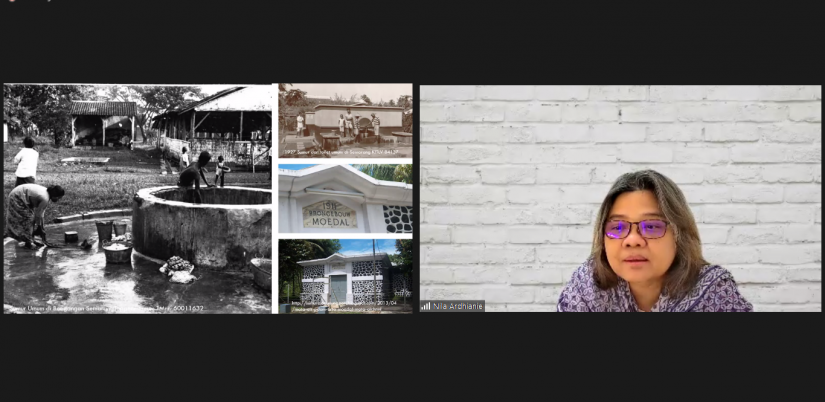
To open the discussion, the moderator said that the class will be divided into two sessions; lecture and the question and answer session. The first session which was the lecture was given by Nila Ardhianie where she talked about the basic function of water. Generally, water is a vital resource for human life because it is important for our body’s metabolism and the development of a city. The importance of water in a human’s life is equal to that of food. In this regard, both resources are important to fulfill human’s biological need, economical commodity, or cultural strength. The difference is that food is decentralized, locally grown, and is a part of the individual’s initiative. Meanwhile, water is organized by big bureaucrats, technical control, action and collective intervention in a system of centralized decision making.
The control of water is a way to secure and strengthen power in a modern world. Power is political and hence leaders invest in the creation of dams and canals that could stem from genuine care to conserve water or simply to demonstrate their power while doing it. Other than that, the motivation to control water could also be commercial, which is the reason why there is a tight competition between multinational water companies.
The problem of water needs in cities is pretty complex because it is impacted by the sharp rise of population. Unfortunately, water privatization is also increasing which creates water inequality in the society. Therefore, it is important that the topic of water is paid attention to and becomes a continual discourse in the bid of increasing water awareness and how to ideally manage it in our society.
